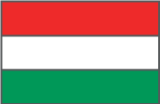Hungary
Hungary
Hungary is a relatively small, emerging donor country, but it strives to take an active role in the development efforts of the international donor community, in accordance with the country’s capacities. Related to the Hungarian “Global Opening Policy” launched in 2014, international development cooperation (IDC) is an integral part of Hungary’s foreign policy and external relations. Hungary’s IDC Strategy of 2014-2020 is in compliance with the objectives and directions of the national foreign, security and economic policy documents and corresponds to the internationally agreed development goals and principles, aiming at the following sectors:
- Institutional development: consolidating democratic structures and the rule of law, sharing the experience gained during transition and integration processes; good governance, institutional capacity building of central, local and sectoral administration, strengthening civil society);
- Green growth, environmental and climate protection (rural and urban development, food security, sustainable agriculture, sustainable water management, sanitation, climate change adaptation); and
- Human development (education, health, culture, equal opportunities, protection of minorities and vulnerable groups, social institution development, scientific cooperation).
As a growing donor, Hungary has been focusing its development assistance mainly on the neighbouring region (Western Balkans, Eastern Europe), some countries in Africa (in particular Horn of Africa), the Middle East and Asia. The majority of Hungarian official development assistance is allocated through multilateral channels, in the form of compulsory and voluntary contributions to international organizations and funds. Hungary has a strong comparative advantage in the field of technical and organizational knowledge and experience, in sectors of water management, agriculture, education, transport, and energy.
- In 2016, Hungary has become the member of OECD Development Assistance Committee (DAC).
- Hungary’s development activities show a rapid expansion in the last years, notably a growth of official development assistance (ODA) reaching USD 156 million in 2015. Taking into account the 2030 target (0.33% of GNI within the framework of the Agenda2030), Hungary strive to increase its ODA annually.
- The major part of Hungarian ODA is carried out by multilateral contributions (about 75-85%), of which 75% is related to its EU membership.
- A total of 39% per cent of Hungarian international development cooperation activities are bilateral official development assistance (ODA) programmes. The remaining part is allocated through multilateral channels. The Ministry of Foreign Affairs and Trade coordinates approximately 10 per cent of bilateral and 14 per cent of multilateral ODA.
- During the last years, bilateral ODA was mainly carried out through technical assistance projects, aiming to share our experiences on regional integration.
Agencies
Principal official agency responsible for TCB assistance to developing countries
Tel: +36 1 458 10001231
Fax: +36 1 212 5918
The Ministry of Foreign Affairs and Trade of Hungary is responsible for planning and coordinating Hungarian international development cooperation and humanitarian aid activities via the Department for International Development and Humanitarian Aid. The Department's structure includes three units specialized in the three main development aid activities of Hungary: Bilateral and Strategic Unit, Project Coordinating and Tendering Unit and Multilateral Unit.
Interministerial Coordination Mechanism
The primary task of Inter-ministerial Coordination Committee is to (i) make recommendations and proposals regarding IDC, especially on how to effectively use the budgetary instruments available for IDC and humanitarian aid, considering among others policy coherence for development, and (ii) to monitor the implementation of Hungary’s IDC and humanitarian aid policy and to discuss current issues. As part of the coordinating work of the IDC Committee, the MFAT puts emphasis on increasingly monitoring the IDC-related activities of line ministries.
Selected TCB programmes and initiatives in this guide
Linking supply and demand
Services to facilitate export

